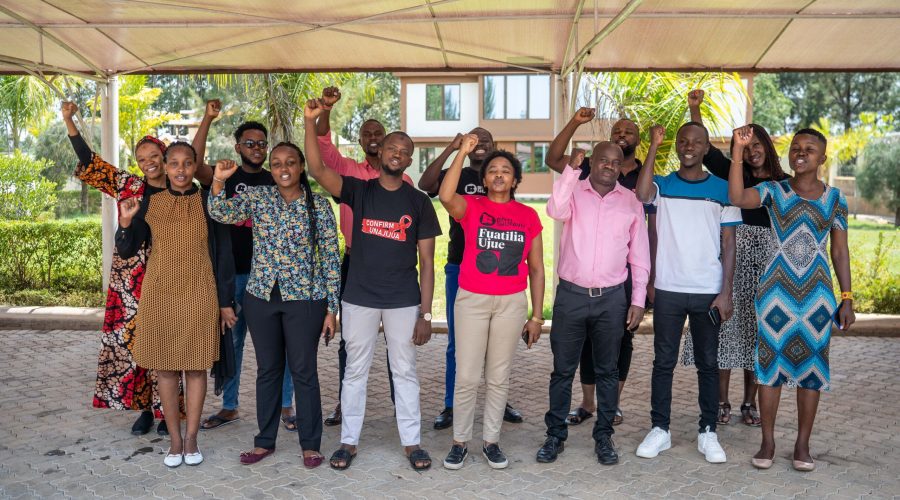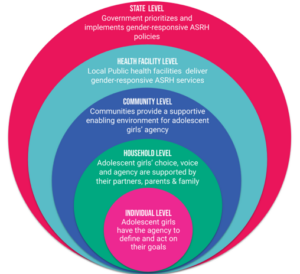Over the years, there has been growing recognition of young people as key stakeholders in health promotion and disease prevention efforts across the globe as evidenced by international frameworks such as the Convention on the Rights of the Child (CRC) and the International Conference on Population and Development (ICPD) that recognize the importance of youth participation in decision-making processes related to health. Meaningful Adolescent and Youth Engagement (MAYE) focuses on ensuring that young people are not only participants but also active shapers of the decisions and initiatives that impact their lives.
A360’s journey in pursuing MAYE within its project implementation echoes PSI’s commitment to move beyond the involvement of young people solely as beneficiaries towards engaging them as equal and valuable partners in projects, research, programmes and initiatives. A360’s MAYE framework, initially developed in 2021, supported the mainstreaming of MAYE across the project ensuring that adolescents and youth are motivated to contribute, learn, and aspire for their next move while pro-actively engaging and amplifying their voices, ideas and creativity.
A360’s 2024 revised MAYE strategy offers evidence-based insights into the MAYE approaches from 3 years of learning and unlearning generated during implementation of the 2021 framework and through a consultative process with adolescents, A360 Youth Innovation Champions/officers (YIC/Os), government officials, and A360 project country and global teams.
We are excited to share this revised MAYE framework with the global community of practice, hoping that others may find it useful as we commit to pursuing youth-led programming.
The strategy is organized around four key objectives; 1) Build capacity, 2) Activate change agents, 3) Elevate youth and adolescent voices and 4) Strengthen the enabling environment. Each objective contains sub-themes that provide clarity on the approaches that will be implemented and the ‘strategy in practice section’ under the sub-themes highlights examples of approaches that have been effective across the A360 geographies.
By Winnie Musubika, Senior Technical Advisor, Adolescent and Youth SRH, A360




